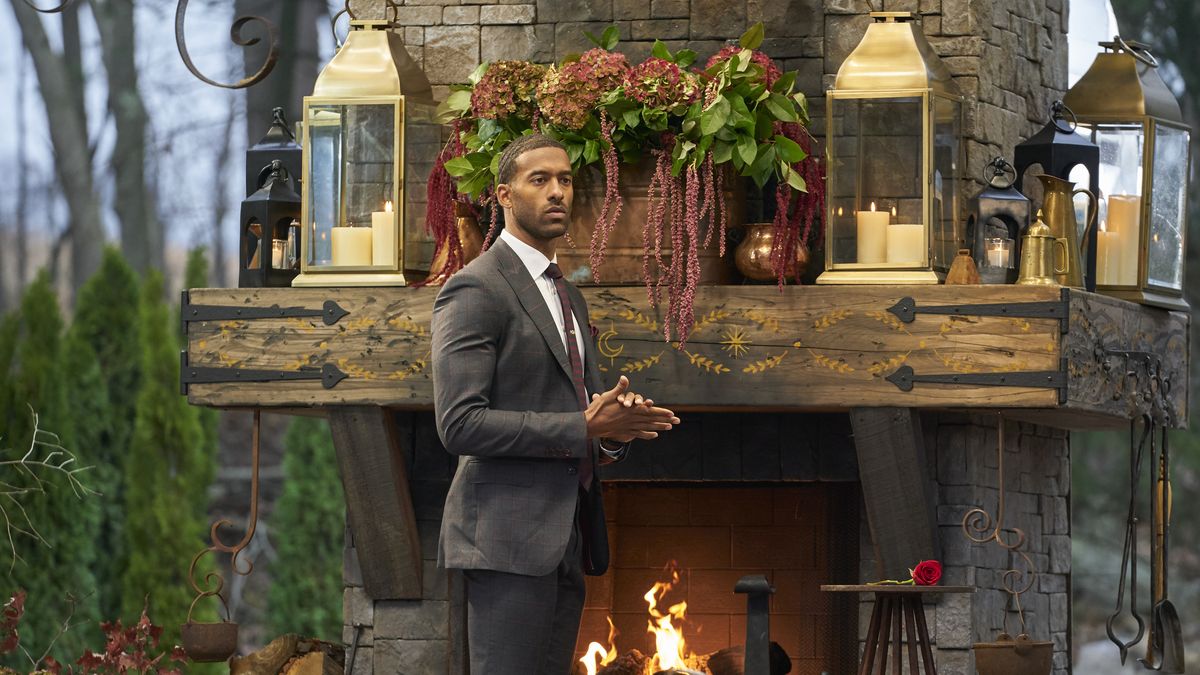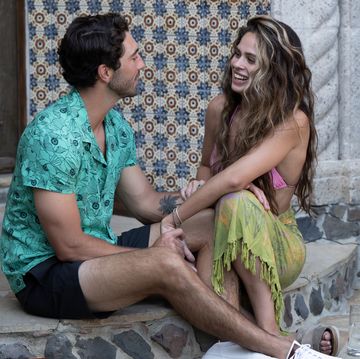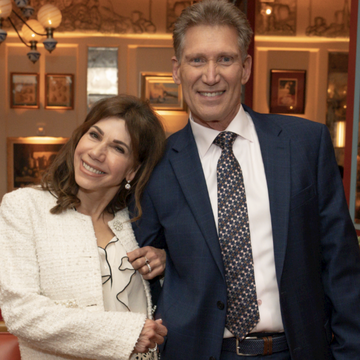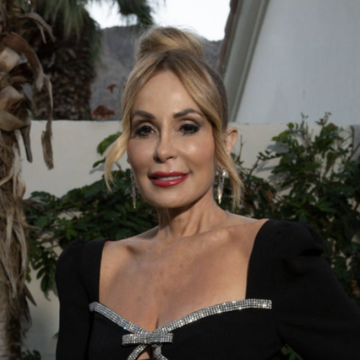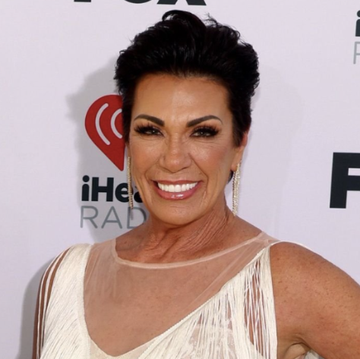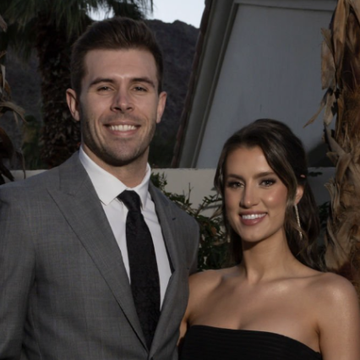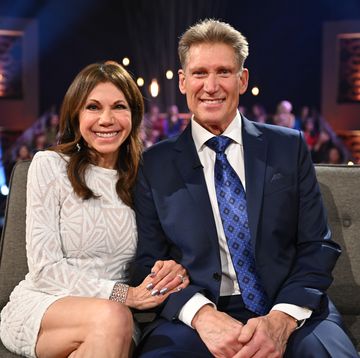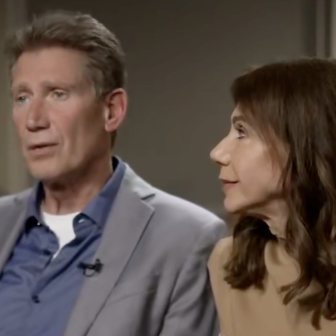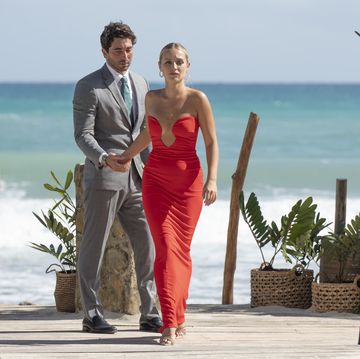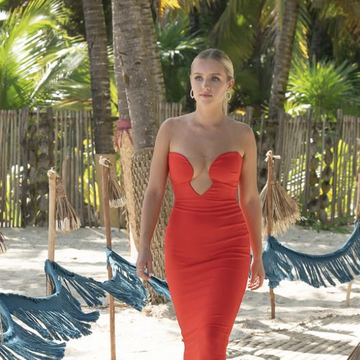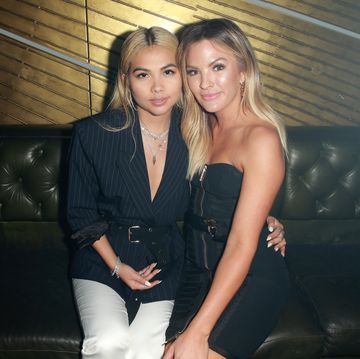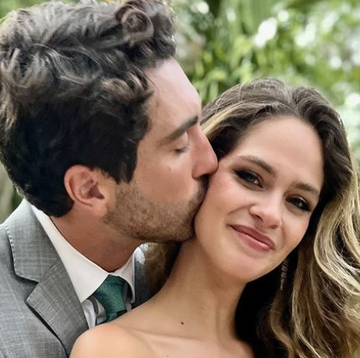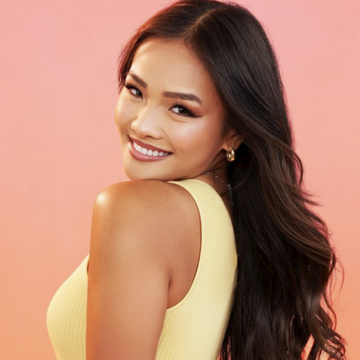The final episode of season 25 of The Bachelor promised to be a finale unlike any other. It was coming after a season defined by offscreen racist controversy surrounding photos of front-runner Rachael Kirkconnell at an antebellum plantation party in 2018 and host Chris Harrison’s tone-deaf defense of her in an interview with former Bachelorette and Extra host Rachel Lindsay. The “After the Final Rose” special would not be hosted by Harrison but by sports analyst and author Emmanuel Acho.
But some things remained the same. As the preview played, a familiar, paternal voice explained to viewers what to expect from this shocking night of television. It was the voice of Harrison, who had stepped aside from the franchise to get “educated” after that disastrous interview. Yet…he was still there.
This decision was indicative of the show’s fundamentally shallow approach to racial progress: We weren’t going to see The Bachelor engage in honest self-reflection about the ways in which the show actively inflicts harm on the people of color who pass through it, and we certainly weren’t going to see them institute substantive, lasting changes to the franchise.
Instead, we saw producers try to perform a clever sleight of hand: give the audience just enough progress to quiet them for a while. Focus on the individual players rather than what they represent to those watching. Decry racism—somewhere, out there, in the world, floating around—without bothering to interrogate how the show courts it and compounds its impact on its BIPOC cast members. Put a neat bow on it all, and wrap up the segment with just enough energy to propel audiences forward into the drama of the next season.
Throughout the night, we saw the show operate in two modes: In one, led by the supposed-to-be-absent Harrison, things were business as usual—all “dramatic fin-ah-les,” sparkly dresses, heartbreak, and love. Matt James ended things with his runner-up Michelle, and was too bereft to go on a final date with Rachael. Would he leave alone and heartbroken? (No.) Would he propose? (Also no.)
In the other, led by the more nimble Emmanuel, who served as both audience stand-in and interrogator, the show attempted to delve into the racial controversy that consumed this season and ultimately led to the demise of Matt and Rachel’s relationship.
“Any other lead would be asked one thing: to find love, to find someone they’re compatible with,” Matt told Emmanuel. “And I feel like the position I stepped into was to take on the weight of everything going on in the country…[and] everything going on in the franchise surrounding diversity and inclusion.”
Viewers were left with three hours of tonal whiplash, without a clear idea where the franchise intends to go next or how it plans to prioritize racial equity (if at all).
For most of its nearly-20-year run, The Bachelor pretended that it operated in a world where religion, politics, sexuality, and race neither existed nor informed choosing a romantic partner. Conversations about religion were reduced to generalities about the importance of “faith.” Politics were only vaguely alluded to. Queerness didn’t show up at all, other than as a punchline. And race was largely sidestepped, in part by virtue of the fact that the show’s casts were overwhelmingly, consistently white.
That started to change, by force, over the last nine years. In 2012, two Black men filed a lawsuit against The Bachelor alleging racial discrimination. The suit was dismissed, but subsequent casts became notably more racially diverse. In 2017, attorney Rachel Lindsay was cast as the Bachelorette, the franchise’s first Black lead. And then after 2020’s summer of racial reckoning and after a group of BIPOC-led fans organized a campaign for Bachelor Diversity, ABC announced that Matt James would be the franchise’s first Black Bachelor.
But instead of being a historic turning point, Matt’s search for love was overshadowed by all the racist controversy, which culminated in Chris’s rant about the “woke police” on Extra and producers’ decision to pull him from hosting “After the Final Rose” and the next season of The Bachelorette, which will star Katie Thurston.
These were unprecedented—and heartening—steps for the franchise. In nearly 20 years on the air, Chris has been its reliable, omnipresent host. Subbing in Emmanuel, a Black host with a platform partly built on having honest conversations about race, for “AFTR” seemed like a sign that production might be willing to make drastic changes.
As a replacement, Emmanuel took the conversations to places where Chris never did—or could: He pressed Rachael about her past, and he had sensitive conversations with both Matt and Michelle about how this scandal affected them emotionally. From Matt, he drew out an explanation of how discovering that his serious girlfriend had attended an antebellum plantation party several years before had forced him to the painful realization that she didn’t understand his life as a Black man in America.
But even with a more deft new host in the driver’s seat, structural change was clearly not on the roadmap. Although Emmanuel investigated the racism Matt faced, he never indicted the franchise itself. Matt discussed whether the pressure placed on him to represent Black men was internally applied, for example, but neither he nor Emmanuel broached the question of whether the franchise exploited him to cover for their own long-running diversity problem. The perpetrators, aside from Rachael, were either nebulous or internal forces of racism.
But the franchise itself is culpable here, and it has to take serious, substantive steps to address the racism that winds throughout it.
As far as solutions go, the most obvious first step is to permanently replace Chris with someone who has the range to guide a diverse group of contestants and audiences through emotional turmoil. Several cast members, including fan favorite Ivan Hall, have publicly stated that they would not feel comfortable returning to the franchise if Chris is still an active part of it. (Current signs point to the beleaguered host’s eventual return—he appeared on GMA, and both Emmanuel and advisor Michael Eric Dyson, PhD, publicly have called for people to give Chris space to “do the work.”)
But it’s not just Chris Harrison. The show needs to have people of color behind the camera, at every level of the team, including high-level producers and editors. Selecting a lead (and host), casting contestants, planning dates, interviewing cast members for confessional footage, piecing together the narrative from truckloads of raw footage—these decisions all shape the final product we see onscreen just as much as the cast does. The show’s entrenched whiteness leads the franchise again and again to troubling decisions like the one, last week, to air a painful conversation between Matt and his estranged dad, which leaned into damaging stereotypes about absent Black fathers for the sake of delivering a dramatic storyline to a largely white audience.
These institutional failings have created an atmosphere in which BIPOC cast members do not feel safe, seen, or respected—and certainly are not set up for success when it comes to finding love. But despite carving out an hour-long segment that treated racism and racial reconciliation with the seriousness that it has always deserved, The Bachelor still doubled down on protecting itself from critique and blame.
In the final minutes, after wrapping up a raw, heartbreaking joint interview between Matt and Rachael—both still visibly distraught by the breakup and everything that precipitated it—Emmanuel pasted a grin back on. It was time to introduce the next (two!) Bachelorettes, Katie Thurston and Michelle Young, to America. Only the most superficial problems of the franchise have been admitted to or addressed, but there’s no time to pause and reflect. The show must go on.
